Bali is often referred to as the “Island of the Gods”. and that is for a reason. While it has stunning beaches and picturesque landscapes, it is also famous for its rich and vibrant culture around Hindu deities and other ancient myths. At the heart of this culture are numerous festivals and holidays in Bali, which play a significant role in the lives of its people. These celebrations, practiced very prominently by the people, are a testament to the island’s spiritual and cultural heritage.
This is what Bali is known and loved for: Beautifully dressed people performing rituals. In this article, we explore the most important festivals and holidays in Bali that define the cultural tapestry.
Galungan and Kuningan – Celebration of Good over Evil
Duration: 10 days
One of Bali’s most significant festivals, Galungan, is a celebration of the victory of good over evil. It occurs every 210 days in the Balinese calendar. The festival’s name is derived from the word “Galang,” which means “to win” or “to fight.”
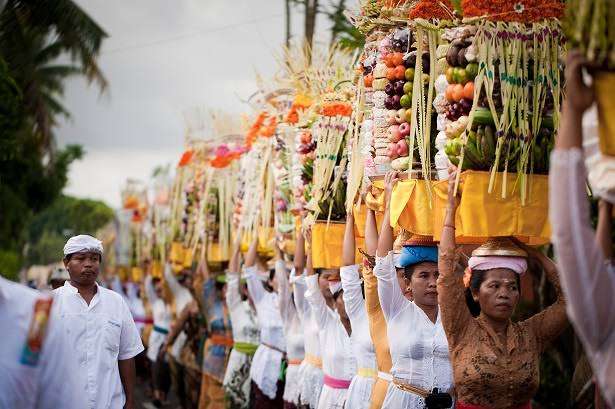
During Galungan, Balinese Hindus believe that the ancestral spirits return to Earth to visit their former homes. To welcome these spirits and ensure their protection, Balinese families create intricate offerings called “penjor.” These are long, beautifully decorated bamboo poles adorned with rice, fruits, and flowers. The penjor line the streets, creating a stunning visual display.
Kuningan, which falls ten days after Galungan, marks the end of this significant festival. It is a time for family gatherings and feasting, as well as for giving thanks to the gods for their blessings. People dress in their finest traditional attire, visit temples, and make offerings. Galungan and Kuningan are not only religious events but also occasions for unity, reflection, and gratitude within the Balinese community.
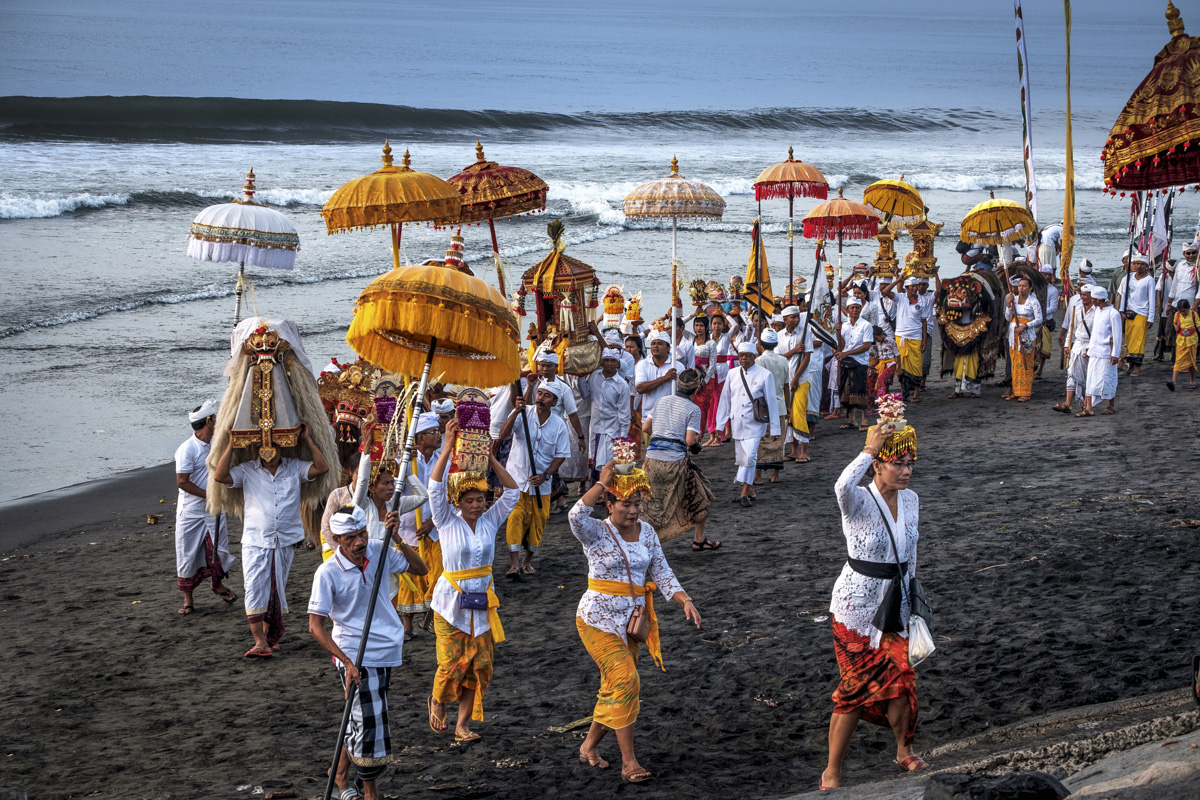
Nyepi – Bali’s Day of Silence
Duration: 1 day
Nyepi, also known as Bali’s Day of Silence, has a unique place amongst festivals and holidays in Bali – as it is celebrated with profound reverence. It marks the Balinese New Year, falling on the first day of the Saka lunar calendar. Unlike the lively and colorful celebrations of other festivals, Nyepi is characterized by silence and introspection.
On Nyepi day itself, the entire island comes to a standstill. Bali’s streets are empty, and the island plunges into complete silence and darkness. Residents and visitors alike stay indoors, refraining from any form of entertainment or activity. Even the airport ceases operations.
Nyepi is a day for introspection, self-reflection, and meditation. It is a time for Balinese people to cleanse their minds and souls, as well as to give the island a much-needed respite from the hustle and bustle of daily life. The silence and stillness are seen as a way to ward off evil spirits and negative energies.

Spectacular: Ogoh-Ogoh parade
In the days leading up to Nyepi, Bali comes alive with vibrant processions and parades, the most notable being the Ogoh-Ogoh parade. Giant, grotesque effigies, representing evil spirits, are carried through the streets, accompanied by music and dancing. This spirited procession is an attempt to make all demons and ghosts come to bali. But it is a trick: As everyboday in Bali isi hiding for the next 24 hours on Nyapi, the demons attracted by the noise, will find an empty island. As there is no one to perform disasters with, this will keep them away for the following year.
This event is happening literally everywhere on the island – as these parades will move through all important streets.
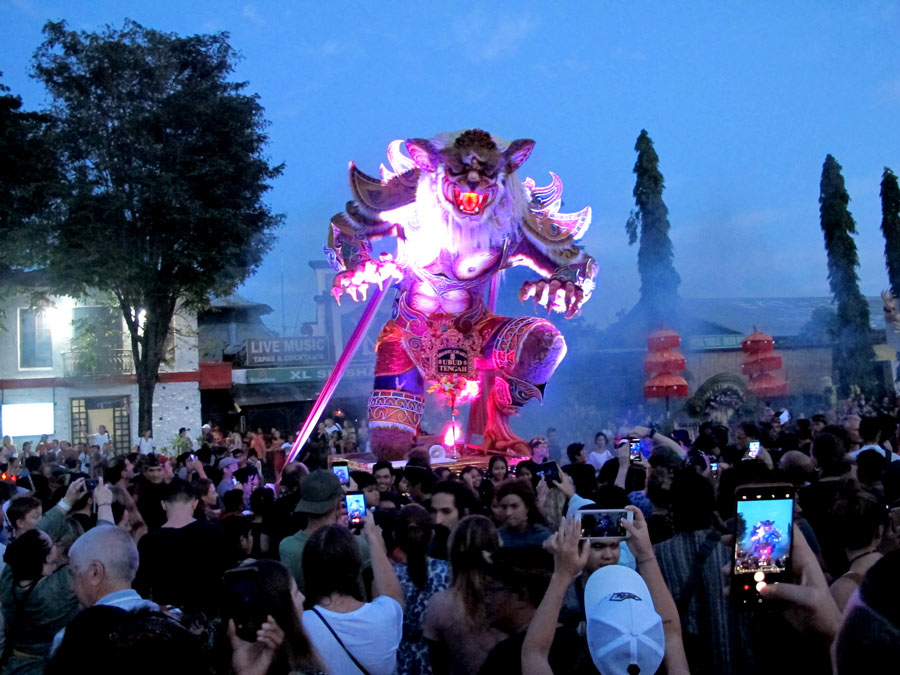
Purnama and Tilem: Full Moon Celebrations
In Balinese culture, the phases of the moon hold great significance. Two important lunar celebrations are Purnama (full moon) and Tilem (new moon). These events are observed to honor the moon’s cycles and their impact on various aspects of life.

Purnama: During Purnama, which falls on the full moon, Balinese Hindus engage in special rituals and ceremonies. People visit temples to offer prayers and seek blessings. They believe that the moon’s energy is at its peak during this time, making it an auspicious period for spiritual activities.
Tilem: Conversely, Tilem, which falls on the new moon, is a time for purification and cleansing. Balinese Hindus use this occasion to make offerings to the gods and ancestors, seeking protection and guidance. Tilem is a time of introspection and a fresh start.
Both Purnama and Tilem reflect the deep connection between the lunar cycles and Balinese spirituality. These celebrations are a reminder of the island’s close ties to nature and the cosmos.
Saraswati – Honoring the Goddess of Knowledge
Occurs every 210 days
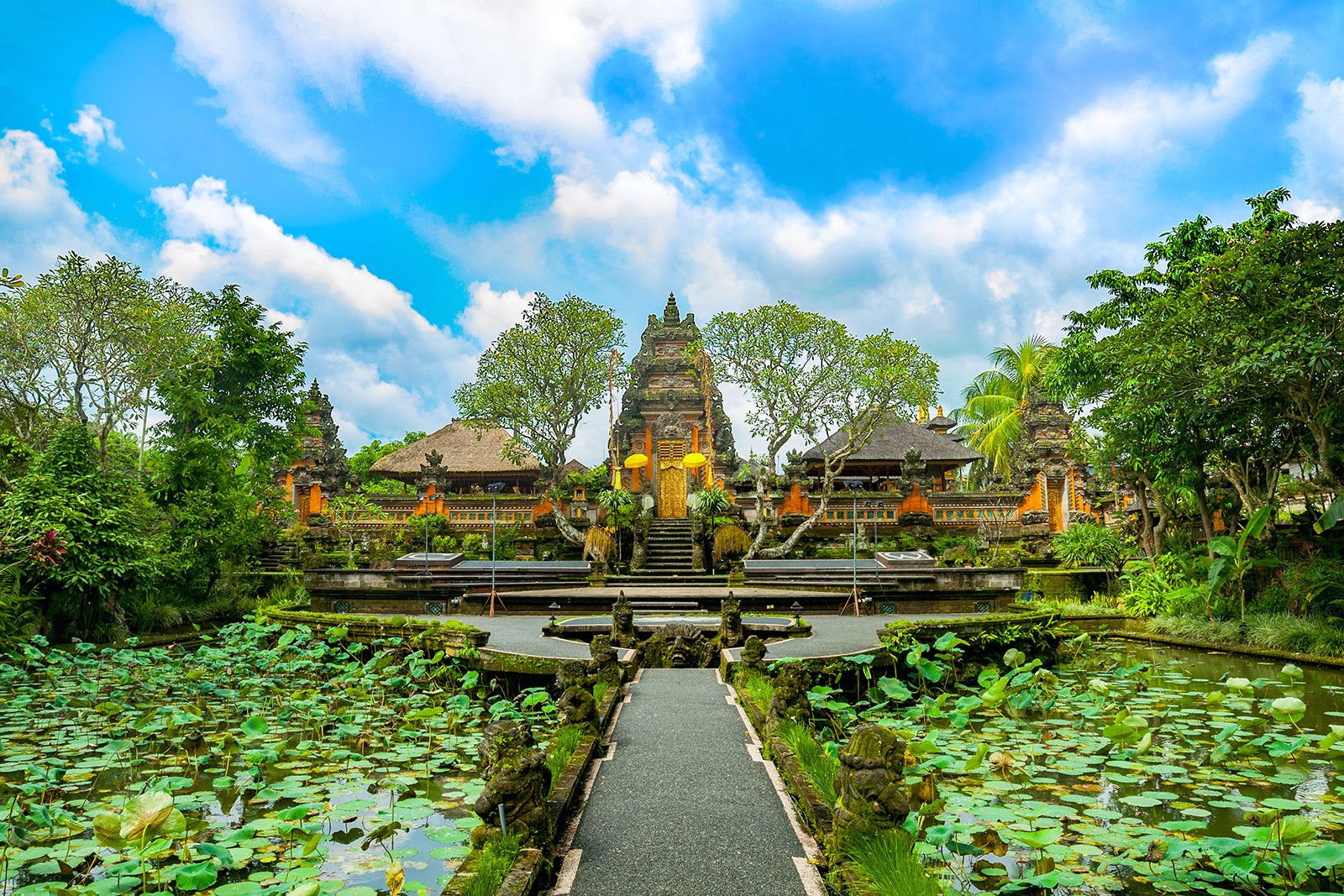
Saraswati, the goddess of knowledge, arts, and learning, is honored during the Saraswati holiday in Bali. The festival is celebrated every 210 days, corresponding to the Saraswati day in the Balinese calendar.
On Saraswati day, Balinese people pay tribute to the goddess by blessing books, instruments, and all forms of knowledge-related items. Schools, libraries, and universities are adorned with offerings and decorated with vibrant flowers. It is a day to express gratitude for the gift of knowledge and to seek Saraswati’s blessings for wisdom and intellect. One of the most famous temples is dedicated to her too.
Saraswati is a festival that underscores the importance of education in Balinese society. It reflects the island’s commitment to nurturing talent and preserving traditional knowledge through generations.
Tumpek Uduh and Tumpek Kandang – Blessing Plants and Animals
Tumpek Uduh and Tumpek Kandang are unique celebrations in Bali that focus on the blessing of plants and animals, respectively.
Tumpek Uduh: At this festival dedicated to the blessing of plants and all things related to agriculture, Balinese farmers and gardeners express gratitude for the Earth’s fertility. They seek blessings for bountiful harvests. Offerings are made to rice fields, gardens, and plantations.
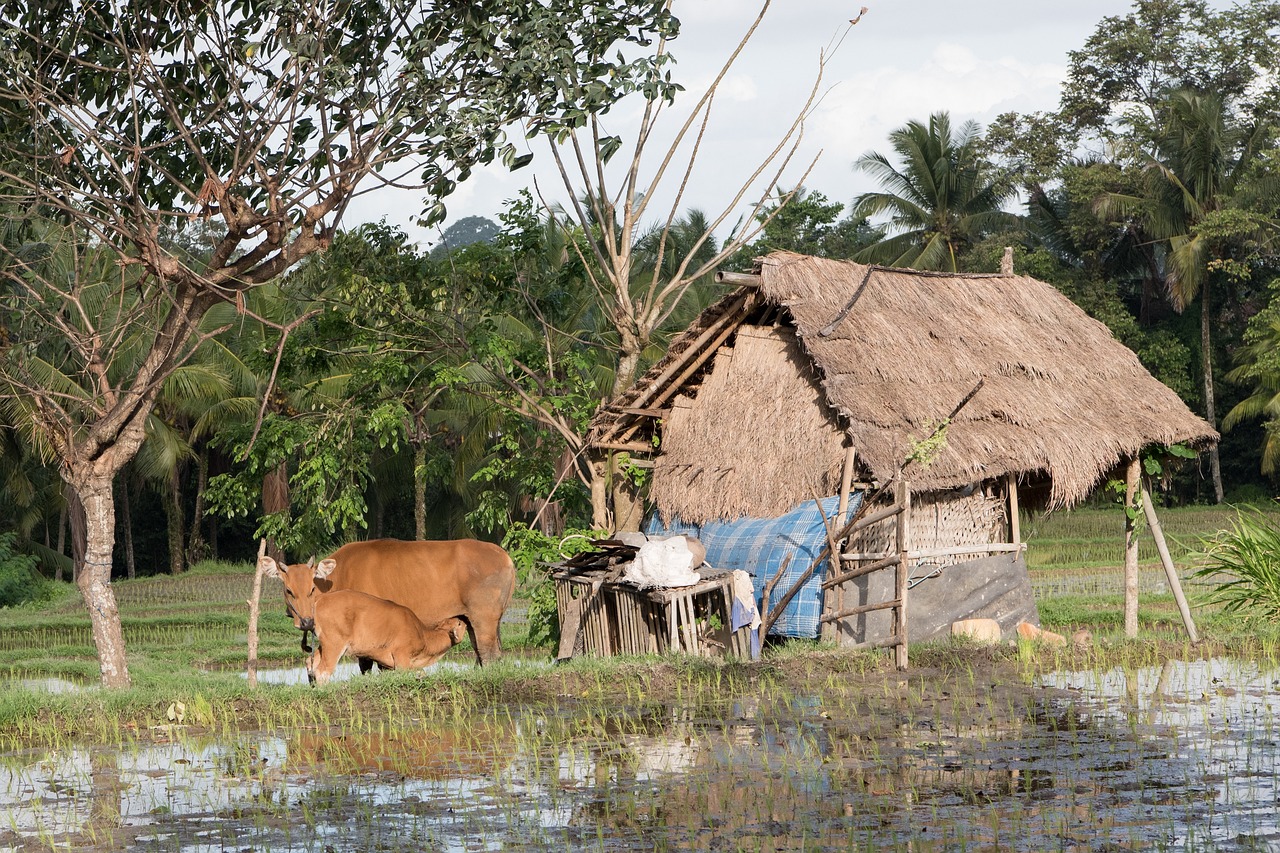
Tumpek Kandang: Tumpek Kandang, on the other hand, is a day dedicated to honoring animals, especially those that are domesticated. Balinese families make offerings and pray for the well-being of their livestock and pets. The day also emphasizes the importance of animals in agricultural and daily life.
These ceremonies illustrate the deep respect that Balinese people have for the natural world. They highlight the interconnectedness of humans, plants, and animals and the importance of maintaining harmony in the ecosystem.
Pagerwesi – Important festivals and holidays in Bali
Pagerwesi is another significant holiday in Bali, dedicated to strengthening one’s spiritual defenses and self-purification. The word “Pagerwesi” is derived from two Balinese words, “Pager” (fence) and “Wesi” (iron). It signifies the importance of fortifying one’s spiritual defenses against negative influences.
During Pagerwesi, people visit temples to pray and seek protection from negative energies and evil spirits. Offerings are made to honor the gods and ancestors, and priests conduct special ceremonies to purify the soul. Pagerwesi is a time for personal reflection and spiritual growth.
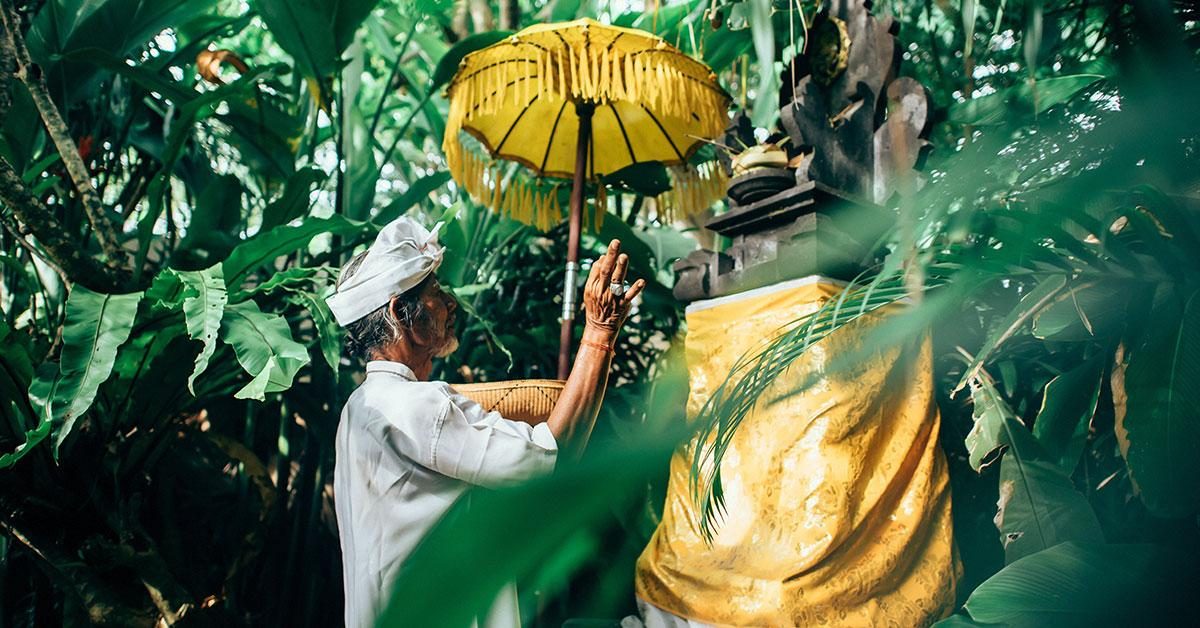
8 lesser-known facts about Festivals and Holidays in Bali
- Mobile Internet Ban on Nyepi: During Nyepi, Bali’s Day of Silence, not only are people expected to observe silence, but some mobile internet services are also temporarily shut down. This ensures that people have no distractions and can fully embrace the day of introspection.
- Colorful Ogoh-Ogoh Creatures: The Ogoh-Ogoh effigies created for the Nyepi celebrations are not only grotesque but also incredibly colorful. They are constructed with vibrant hues to represent the evil spirits, making the parade a visually stunning event. Don’t miss this carneval-style event!
- Kissing on Nyepi: In some Balinese communities, there is a playful tradition where young people engage in secret kissing games during Nyepi, often trying to steal a kiss while observing the day of silence.
- Mock Battles with Ogoh-Ogoh: In some villages, young Balinese men participate in mock battles with the Ogoh-Ogoh effigies before they are symbolically burned at the end of the Nyepi parade. It adds an element of fun and excitement to the festivities.
- Releasing Captive Birds on Tumpek Kandang: During Tumpek Kandang, captive birds are often released as a symbolic act of freeing animals from captivity. This aligns with the Balinese belief in the importance of animal welfare.
- Rice Flour Patterns on Saraswati: On Saraswati day, rice flour patterns known as “rangoli” are created on the ground in front of homes and temples. These intricate designs are meant to welcome the goddess of knowledge and learning.
- Tumpek Uduh’s Bamboo Music: Tumpek Uduh celebrations often feature the playing of traditional bamboo instruments. The melodious tunes add a delightful musical element to the festivities.
- Family Purity on Pagerwesi: Pagerwesi is considered a day of family purity and strengthening bonds. Families gather to pray together, reaffirming their connections and values, making it a heartwarming occasion.
Conclusion
Festivals and holidays in Bali are not just religious events; they are a testament to the island’s unique blend of Hindu spirituality and Balinese traditions. They offer a glimpse into the heart and soul of the Balinese people, emphasizing the importance of unity, spirituality, and gratitude in their culture.
As a traveler, experiencing these festivals and holidays firsthand can be a transformative and enriching experience. It allows you to connect with the Balinese culture, witness the elaborate rituals and vibrant celebrations, and gain a deeper understanding of Bali’s rich cultural heritage. Embrace the spiritual and festive aspects of Bali’s culture, and you’ll forge a lasting connection with the island and its people, leaving you with cherished memories of this enchanting paradise.
FAQ
Why are festivals and holidays so significant in Bali’s culture?
Festivals and holidays in Bali are very important to the people. They are a way to honor their spiritual beliefs, connect with their ancestors, and celebrate the island’s rich cultural heritage. Every balinese is involved with these festivals and ceremonies, as spirituality is a priority in everyday life.
How often do these festivals and holidays occur in Bali?
The frequency of these celebrations varies, with some occurring multiple times a year and others once every several months, following the Balinese lunar calendar.
Can travelers participate in these festivals and holidays in Bali?
Yes, many of these festivals are open to travelers, and they are encouraged to participate respectfully. Attending these events provides a unique cultural experience.
What are the key differences between Galungan and Kuningan?
Galungan marks the beginning of the festival, symbolizing the victory of good over evil, while Kuningan marks its end with family gatherings, feasting, and giving thanks.
How is Nyepi, the Day of Silence, observed in Bali?
Nyepi is observed by maintaining complete silence and darkness throughout the island. People stay indoors, refrain from entertainment, and engage in self-reflection. everybody has to obey to this – even for tourists there are no exceptions.




